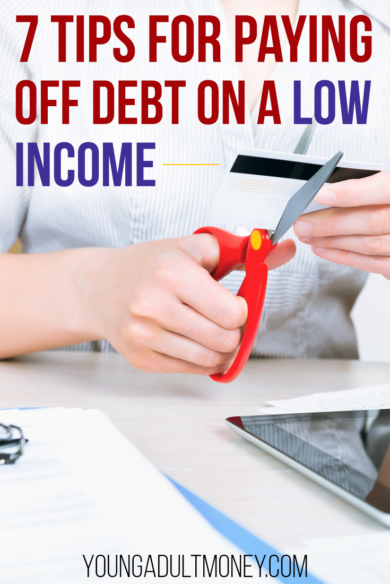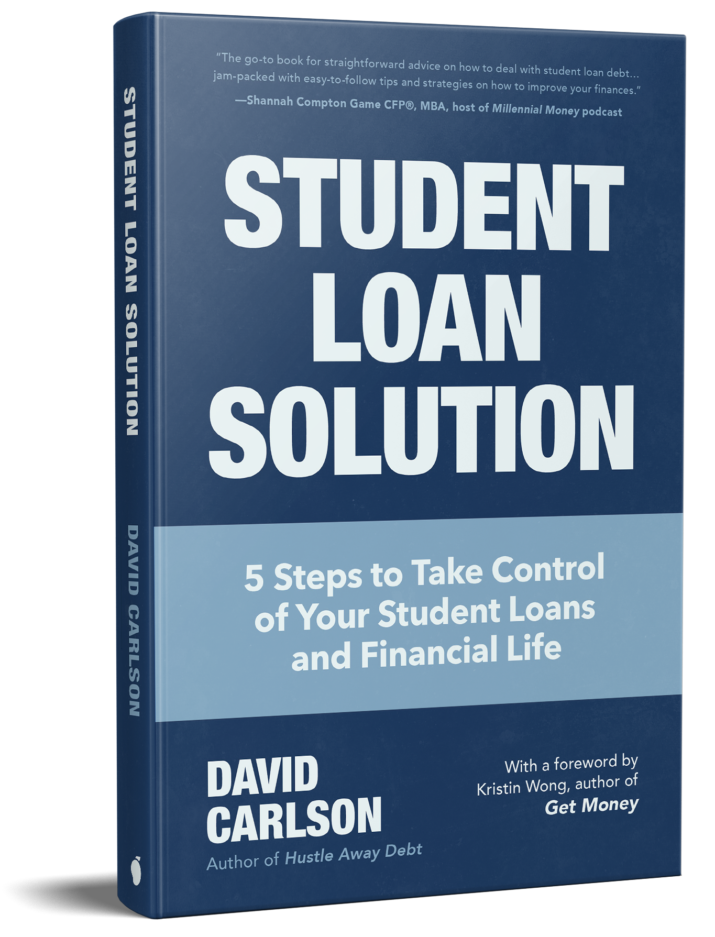 It isn’t easy to get out of debt quickly when you have a small income. But it’s far from impossible.
It isn’t easy to get out of debt quickly when you have a small income. But it’s far from impossible.
No matter how small your income or how big your debt, it is possible to be debt free. You just have to be honest with yourself, work consistently, and not give up. Here are 7 tips to help you pay off debt when you have a small income.
1) Create a Bare-Bones Budget
The first step in starting to pay off debt is to set up a bare-bones budget. A bare-bones budget is just a name for a budget that covers your absolute minimum needs.
To start, you need to first determine the minimum cost of your everyday necessities. This includes things like rent, groceries, utilities, and your car to name a few. These are bills that you cannot cut out – you need to pay for them each month.
See if you could possibly lower these bills. For instance, you could coupon to save money on groceries or shop at a discounted grocery store. If you have extra space, you could get a roommate or list your space on airbnb.
The point of creating a bare-bones budget is to try to free up as much money as possible. In return, you throw any free money towards your debt.
When looking at your budget, consider any bills you could cut out entirely. For instance, cable is an easy thing to cut out and it can save you quite a bit of cash each month.
We created a free budget spreadsheet to help you track your expenses and set up your initial bare-bones budget. It’s easy to use and ensures you can track where every cent goes.
2) Make More Money
You can only cut your expenses so much. To make even faster progress on your debt repayment, consider bringing in more income.
When you combine the power of increasing your income while decreasing your expenses, then you will really start to see a difference in your debt. There are thousands of ways to make extra money, but here are a few ideas to get started:
- Pick up extra shifts
- Ask for a raise
- Do yard work in your neighborhood
- Start selling on Etsy
- Search for a higher paying job
It’s very possible to earn a few hundred dollars extra every single month, or even more, by upping your side hustle game. Imagine if you could put all of your extra income towards your debt – you could pay it off in half the time or less!
3) Give Yourself a Small Reward
Even when you’re doing everything right, debt repayment can simply take time. If your income is small and you have a significant amount of debt, it could still take a couple of years to pay off.
Yes, it will be worth the sacrifice, but you also want to ensure you can maintain your stamina. One way to do this is to set aside a small allowance for yourself each month.
It might seem counter-intuitive, but paying off debt inevitably becomes tiring. To keep yourself going, give yourself a few dollars a month to spend as you like. Setting aside $20 to have dinner with friends once a month or $10 to go see a movie can go a long way to help you stay committed to your debt repayment journey.
4) Hold Yourself Accountable
When I first started paying off my debt, I quickly realized I needed to find someone to hold me accountable to meet my goals. So, I told my sister my goal and I started a blog to document my debt repayment journey. While not many people read my first blog, it was the perfect way to hold myself accountable.
No matter how you find accountability, the most important thing is to share your goals with someone. Be honest with them about your situation, and ask them for their continual support.
5) Consider Refinancing
No matter how much debt you have, you should always at least see if refinancing could save you money.
Refinancing means another company essentially buys your debt. In return, they will give you a lower interest rate and you make your debt payments to them.
Refinancing is great because it can result in you saving money in interest. When my husband and I looked at refinancing our student loans through Sofi, we were shocked to see we were offered a significantly lower interest rate. In turn, the simple move of refinancing will save us literally thousands of dollars down the road because we will pay less in interest.
If you have debt, it never hurts to check to see if refinancing your debt could be beneficial to you.
6) Identify Your Weaknesses
We all have weaknesses. The important thing is to acknowledge where your weakness is and figure out how you can overcome it.
Early on in my debt repayment journey, I realized shopping at Target was one big hangup. I love Target, but I was constantly spending too much money, and it was really hindering my progress. I would go in there with the best intentions of only purchasing items on my list, but I inevitably left with clothing, shoes, and other items I didn’t really need.
So, I avoided Target entirely for over two years! Instead, I shopped at drugstores and grocery stores to find what I needed. It helped me not to overspend, and I was able to throw even more money towards my debt.
It isn’t easy, but your trigger could be costing you big time. Remember, once you pay off your debt, you can go back to spending more freely, so use that as motivation.
7) Start an Emergency Fund
Lastly, an emergency fund is an absolute must for anyone who is in the process of paying off debt.
Without an emergency fund, you don’t have any cushion. Unexpected expenses always happen, and without a proper emergency fund, one minor emergency could completely derail your progress.
There is no rule as to how much you should keep in your emergency fund. The key is to make sure you can cover at least a small unexpected expenses, such as a high utility bill or a car repair. Even $500 can help ensure your finances are protected in the event of an emergency.
Related:
Have you used any of these tips to pay off debt faster? What was the number one strategy you used to become debt-free?



Making more money is always key. I look at where I’m at now compared to 4-5 years ago. The increase in money allowed me to pay off debt and save more.
I can relate, Jason. It’s not the easiest way to improve your finances, but if you can find additional income streams or increase your 9-5 pay, it’s the best way to get in a better spot financially.